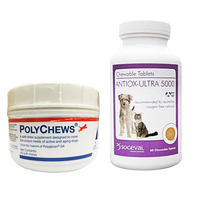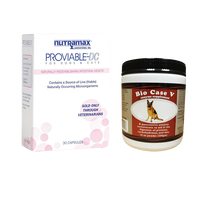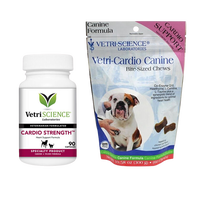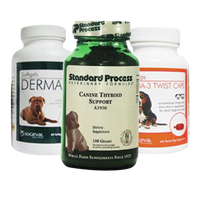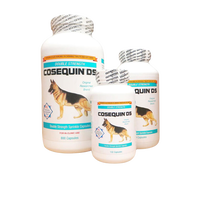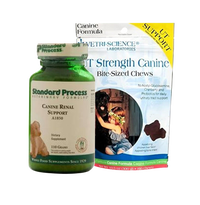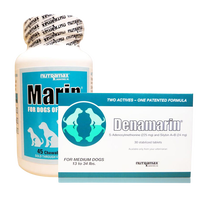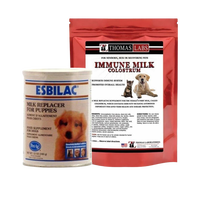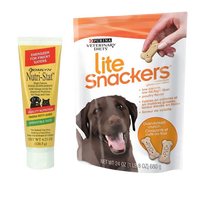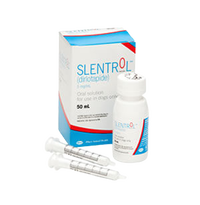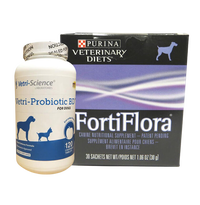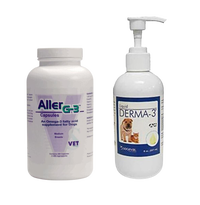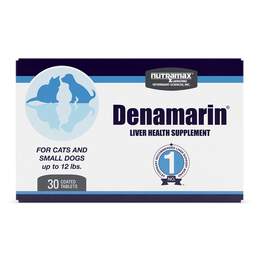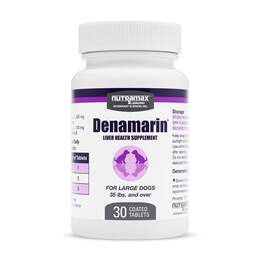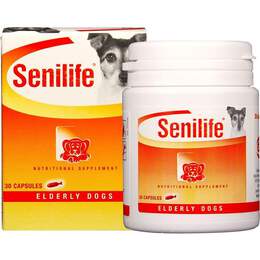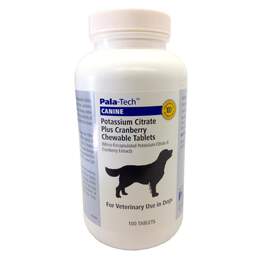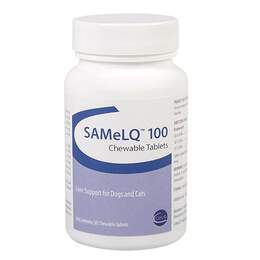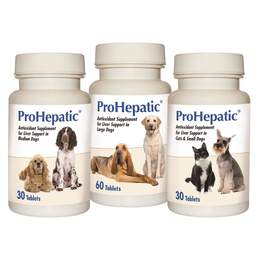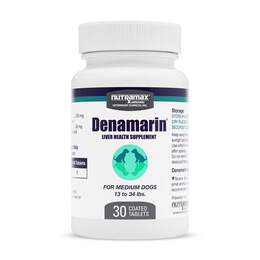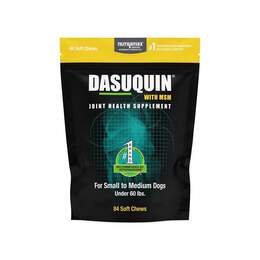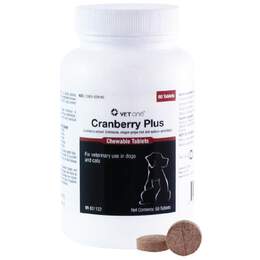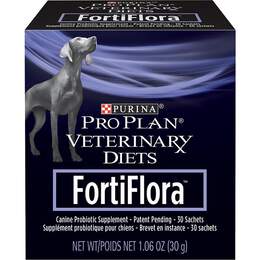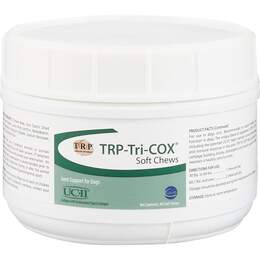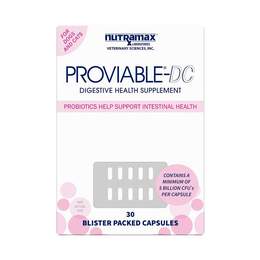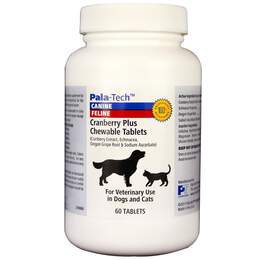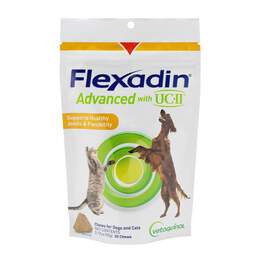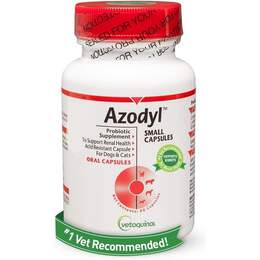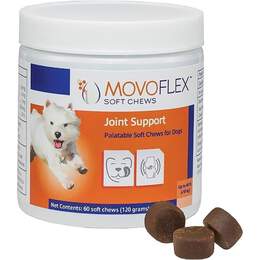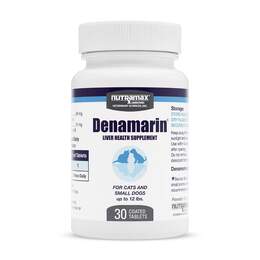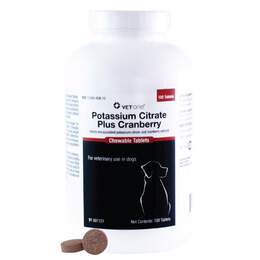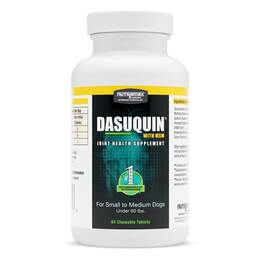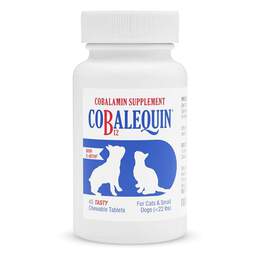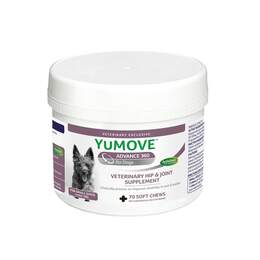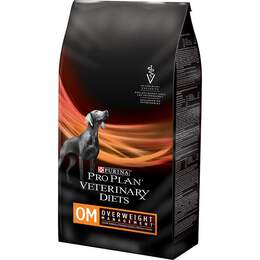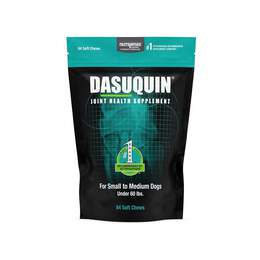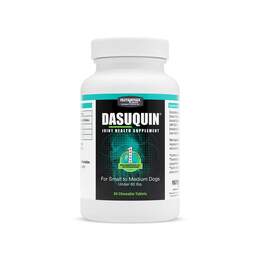Find All the Vitamins and Supplements You Need to Keep Your Dog Healthy
Featured Categories
A lot of people take dietary supplements and vitamins to improve their health and wellness. And increasingly, they are giving them to their pets as well. As a pet parent, you want to make sure your dog lives a long and healthy life. Dogs benefit from supplements and vitamins just as we do. They help your dog’s body function properly and efficiently in every area, from muscle growth to digestive health.
At Allivet we carry a wide range of vitamins and supplements for dogs to support them at every life stage.
Dog Vitamins & Supplements
A vitamin deficiency can cause health problems for young dogs that may have serious and long-lasting health effects. A healthy diet can give your dog all the nutrition they need, but in some cases, dog vitamins and supplements can improve their quality of life or stave off health issues. Joint health is important in dogs, just as it is for us, so supplements such as Dasuquin with MSM soft chews are popular with pet parents.
There is a broad range of dog supplements available to keep our beloved dogs happy and healthy. Dog vitamins and supplements can contain antioxidants, vitamins and minerals, and probiotics. Dogs with arthritis and joint problems can benefit from joint supplements that help them with mobility. Concentrated omega fatty acid supplements can help promote healthy skin and coats, while multivitamins can fulfill their nutritional needs and help maintain overall good health.
Supplements for dogs can help improve their bone strength, eyesight, and skin and coat condition. A vitamin deficiency can weaken your dog’s immune system, reduce their activity level, and cause health issues as they age. The range of vitamins dogs need to stay healthy is similar to that of ours, however, you can’t always give human vitamins to dogs.
Although there are some similarities in dogs and humans, one difference is that dogs can only store a small amount of vitamins in their bodies. In addition, the water solubility of vitamins is different in dogs. If you find out that your dog’s diet lacks specific vitamins, you may need to add some supplements or vitamins to their diet. And, in most cases, due to the differences between a dog’s system and a human’s, you would need to add supplements formulated for dogs.
In addition, many factors can impact your dog’s mental state and mood. Whether taking your dog with you on a mini-vacation or moving to a new home, watching your dog suffer from anxiety, nervousness, and hyperactivity is challenging and heart-wrenching for pet parents. We offer a large selection of supplements for behavioral health that can help ease your pet’s anxiety and other symptoms of distress.
Common Supplements for Dogs
There are many different types of vitamins and supplements for dogs. Below are some of the most common dog supplements:
Multivitamins – never give your dog a human multivitamin. If your veterinarian suggests that you give your dog a multivitamin, choose one that is specifically formulated for dogs.
Omega-3 Fatty Acids – these are beneficial for dogs with heart disease, kidney disease, or joint disease. Fish oil alone might not be enough. Choose a pet-specific formula to make sure your dog gets the right concentrations of EPA and DHA.
Glucosamine/Chondroitin/MSM – joint supplements like these can help dogs suffering from hip dysplasia, arthritis, cruciate injury, and other orthopedic issues. They can help reduce inflammation and provide more lubrication to the joints.
Fiber – fiber is often recommended by veterinarians to bulk up the dog’s stool and avoid anal gland issues, help with constipation, as well as other GI issues.
Probiotics – these nutritional supplements help restore the healthy bacteria in your dog’s gut. Veterinarians often suggest probiotics for dogs that have chronic GI issues or to fight the side effects that often occur with antibiotics.
Vitamins & Supplements for Puppies
Pet parents often wonder if they should give their puppies and young dogs supplements and vitamins in addition to their regular puppy food. Puppies grow fast, and this rapid growth can stress their developing bones and joints, leading to developmental orthopedic disease (DOD) and hip dysplasia in many large and giant breed puppies.
Large and giant breeds include:
- Great Danes
- Mastiffs
- Newfoundlands
- Akitas
- Great Pyrenees
If you are unsure what vitamins and supplements to give your dog, regardless of their size, ask your veterinarian for advice.
FAQs about Vitamins & Supplements for Dogs
Does my dog need vitamins?
The majority of dogs eat a balanced diet that gives them the vitamins and minerals they need to thrive. However, in some cases, your veterinarian will recommend supplements and vitamins to combat specific issues.
Is there any danger in giving my dog vitamins?
There may be some danger in giving your dog vitamins or supplements they don’t need. If they already eat a balanced diet and get too much of certain vitamins and minerals, it could be harmful to them, according to veterinarians and the Food and Drug Administration (FDA). Always consult your veterinarian before adding supplements or vitamins to your dog’s diet.
Too much vitamin A can damage your dog’s blood vessels, causing dehydration and joint pain, too much vitamin D can cause a dog to stop eating, damage their bones, and cause their muscles to atrophy, and too much calcium can cause skeletal issues.
Should I check with my vet before supplementing?
Yes, you should absolutely check with your veterinarian before giving your dog any supplements or vitamins. Symptoms that appear to be arthritis, such as a weak rear end, could be a neurological problem instead. Poor coat condition could indicate metabolic, skin, or hormonal problems. These are issues you don’t want to go undiagnosed or untreated, so check with your veterinarian before you give your dog any supplements or vitamins.
What about the supplements in dog food? Are they enough to keep my dog healthy?
Review the ingredients on the label to see how much is actually in your dog’s food. For example, some adult dog food formulations contain glucosamine/chondroitin, however since state regulations restrict the amount allowed, but it is generally not enough to be a therapeutic dose.
Prescription food is another matter. This food may include therapeutic amounts of the supplement. Other dog foods may be formulated with botanicals, such as cranberry, to combat urinary tract infections (UTIs) or DHA to improve a puppy’s cognitive development.
Is it safe to give my vitamins to my dog?
Before you start giving your vitamins to your dog or purchasing human ones for them, make sure they are okay to give your pet. Although dogs need the same vitamins that we do, the amounts often vary greatly. Check with your veterinarian about the dose and strength recommendations of each supplement you want to give your dog. Ask your veterinarian about the strength and dose recommendation of each supplement you are giving.


